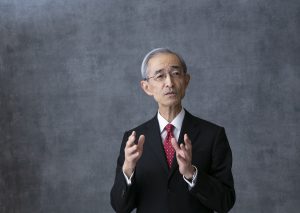MUFG and Morgan Stanley: Inside the Special Relationship

MUFG’s Nobuyuki Hirano: A Path Through Japan’s Challenges
1 October, 2018
Private Equity: Standard Chartered Wants to Combine Venture Capital with Internal Innovation
1 October, 2018Euromoney, October 2018
Cut in the teeth of the financial crisis, MUFG’s stake in Morgan Stanley might well be the best deal of the last 10 years. Much of the success is down to the strong personal relationship between the firms’ leaders.
Full article: https://www.euromoney.com/article/b1b93pw5zhy62d/mufg-and-morgan-stanley-inside-the-special-relationship?copyrightInfo=true
MUFG board meetings aren’t what they once were.
“It used to be very different,” says Nobuyuki Hirano, president and group CEO of MUFG, and chairman of MUFG Bank. “Ours was a kind of ceremony. All the seats were assigned and there was very strict and tight control of the agenda and time management. The time was short: two hours.”
MUFG board meetings are one of many things that have changed as a consequence of Hirano’s close involvement with Morgan Stanley. Appointed to the US bank’s board in 2009, he liked much of what he saw and brought it home.
“Now we have much longer discussions: six, seven hours,” he says, although in order to accommodate this depth he has shifted board meetings from monthly to quarterly. “We encourage more lively discussion and active engagement between outside and inside direction.” They shifted to a US-style corporate governance system. “So, yes, I learned a lot from them.”
It is 10 years since October 13, 2008 when Takaaki Nakajima, then general manager of Bank of Tokyo-Mitsubishi UFJ, turned up at the office of lawyers Wachtell Lipton in New York to present a cheque with nine zeroes on it to Rob Kindler, then vice-chairman of Morgan Stanley (John Mack, chief executive at the time, had been summoned to Washington, as was fairly commonplace at the time).
Kindler told the visiting Japanese contingent that it was going to be a great investment. Then he tapped out a message to the Morgan Stanley management team, sent at 7.53am, which managed to include more exclamation marks than words. Subject line: “We Have The Check!!!!!!” Body: “It’s Closed!!!!!!!!”
Not long afterwards, Katsunori Nagayasu, then president of MUFG, walked out onto the Morgan Stanley trading room floor and received a standing ovation.
“And what he said was very simple,” Hirano says now. “‘Trust. Trust is the key to our alliance.’ And James Gorman [chairman and chief executive of Morgan Stanley] repeatedly reminds me of that. It’s very important.”
One could argue the Morgan Stanley deal was the making of Hirano. He was already very senior and rising when it happened, with a managing director role and responsibility for corporate finance, but a few months after the cheque to Morgan Stanley cleared he was made a director of Morgan Stanley, promoted to deputy president of MUFG and given an additional role as managing officer of MUFG in charge of facilitating the strategic alliance with Morgan Stanley.
It is an alliance that has paid off in a number of different ways. Most obviously, it saved Morgan Stanley. Secondly, it has provided a useful source of income to MUFG. Since financial year 2011, which was when MUFG’s preferred stock in Morgan Stanley turned into common stock, MUFG has received a profit contribution of about ¥909.9 billion ($8.16 billion) from the US bank, according to full-year accounts.
And if you add in the fact that MUFG will be due almost a quarter of Morgan Stanley’s first-half 2018 $5.1 billion net income, it has earned back every penny it put into the Wall Street house and still holds a 24.33% stake worth more than $20 billion. These days the two institutions have a similar market cap. The third mechanism through which the alliance has worked is the securities joint venture in Japan. The venture’s numbers have consistently outpaced those of any other international bank in Japan, as well as most domestic investment banks.
Comparisons are difficult because the venture reports through two different companies with different financial years, but we can say that in 2017 the JV overall produced more net operating revenue and net income than any foreign house in Japan and more than any domestic player except Nomura.
Read the full article here: https://www.euromoney.com/article/b1b93pw5zhy62d/mufg-and-morgan-stanley-inside-the-special-relationship?copyrightInfo=true
